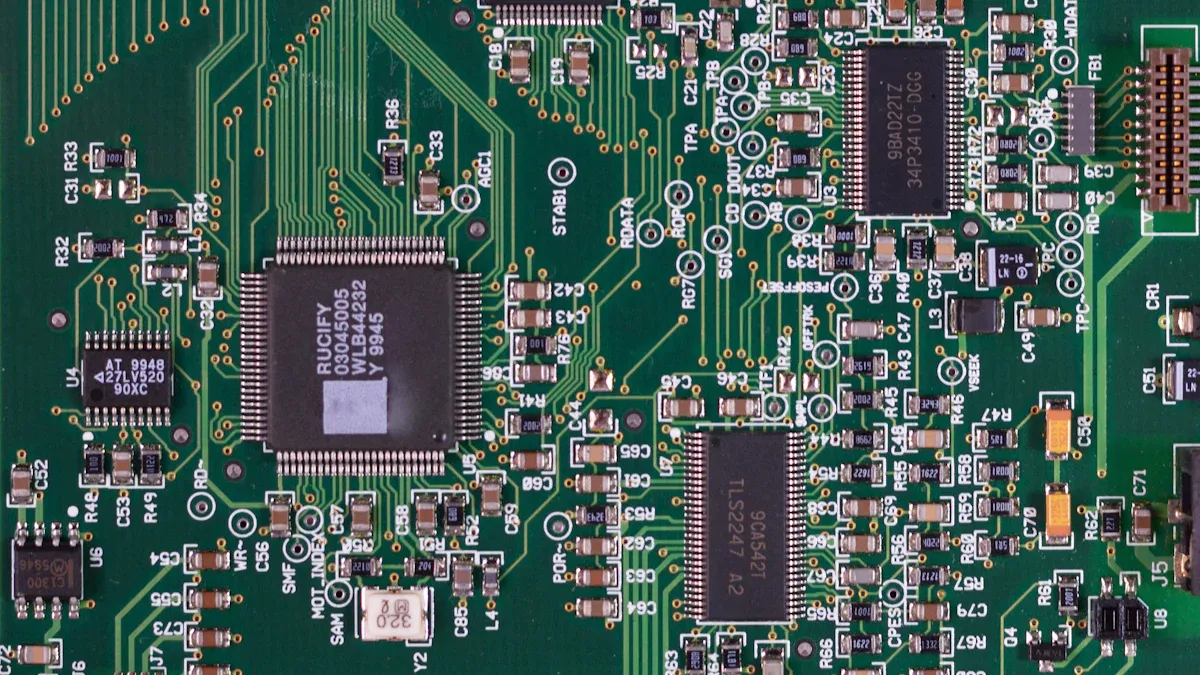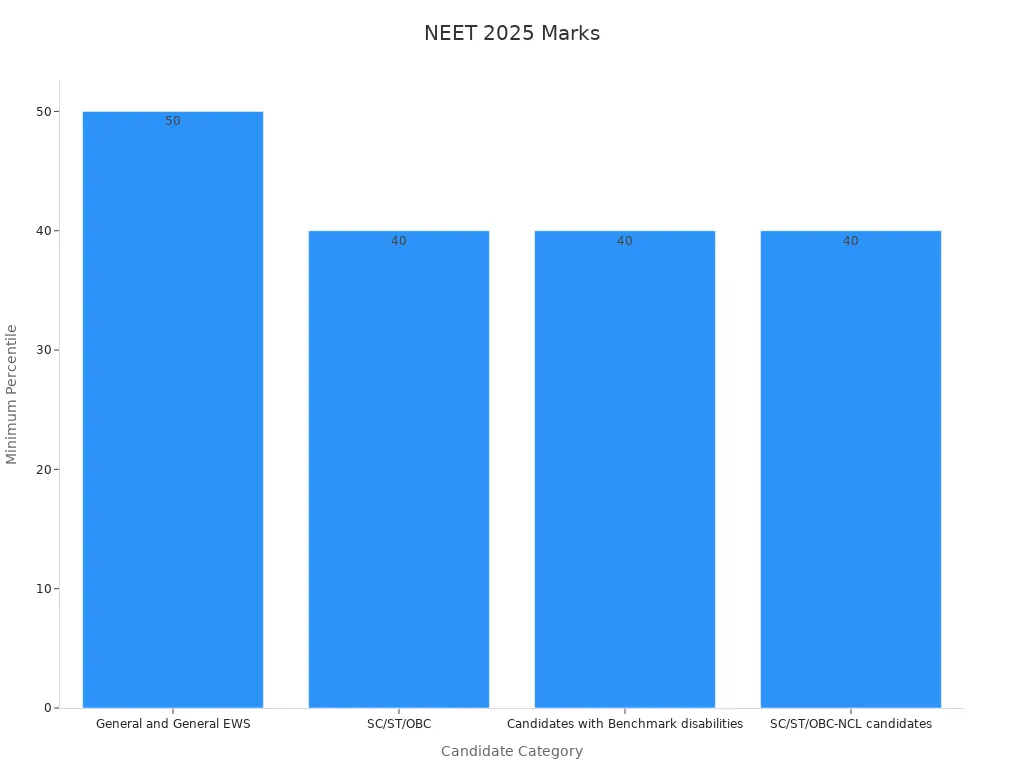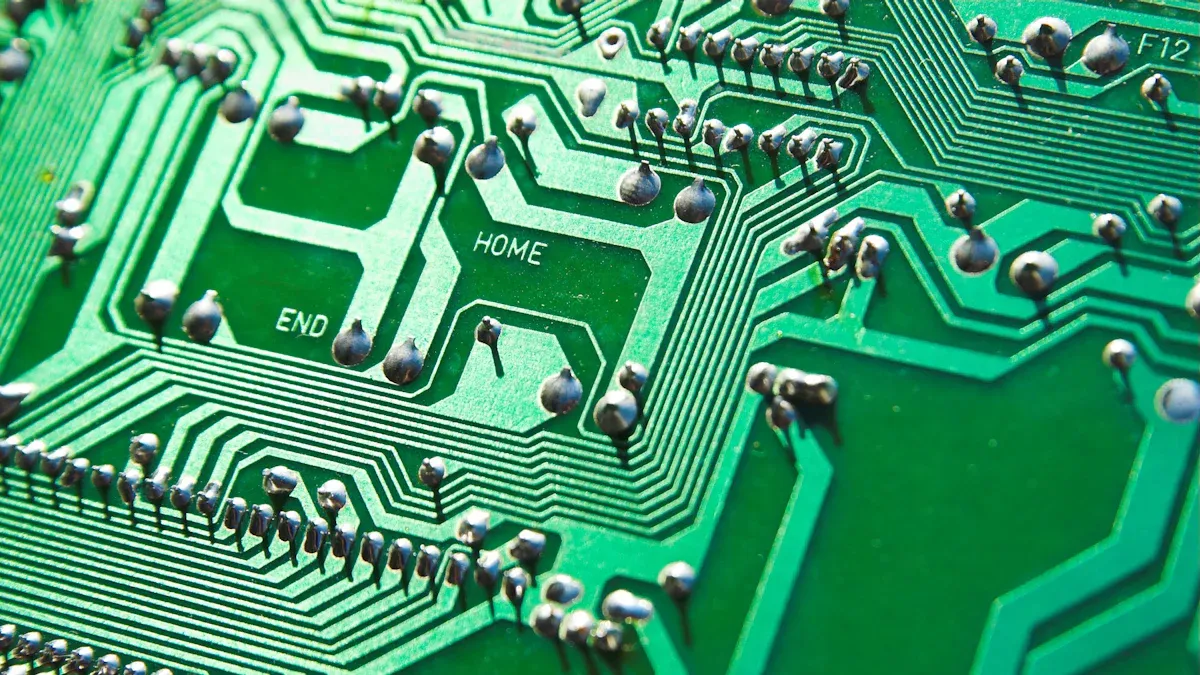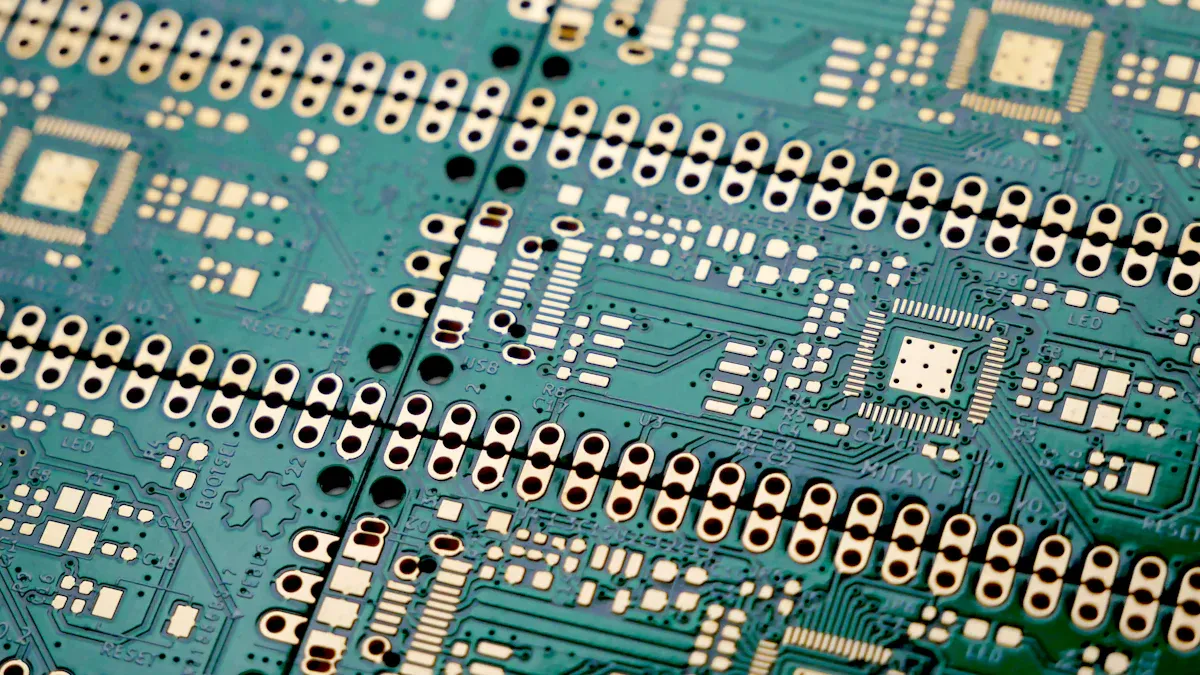
PCB grouping marks for NEET, which refer to your Physics, Chemistry, and Biology scores from 12th grade, play a crucial role in determining your NEET 2025 eligibility. Achieving the minimum pcb grouping marks for neet is essential; without them, you won’t be able to apply for medical admissions. Securing the required NEET 2025 marks enables you to qualify and pursue a career in medicine.
Recent changes in NEET rules, such as the removal of minimum marks for MBBS, have sparked debates. While this may increase opportunities for students, it could potentially impact the quality of education. As a student, focusing on your pcb grouping marks for neet is vital. It not only strengthens your knowledge but also enhances your performance in NEET.
Key Takeaways
Getting the required PCB marks is important for NEET eligibility. Without these marks, you can’t apply for medical colleges.
Work hard on Physics, Chemistry, and Biology. Good scores in these subjects improve your NEET rank and chances of admission.
Learn the minimum marks needed for NEET 2025. Each category has specific scores you must reach to qualify.
Check which topics are most important in each subject. Focus on these topics to get a higher NEET score.
Practice often and take mock tests. This helps you find weak spots and get better before the exam.
What is PCB grouping in NEET?
Definition and importance of PCB grouping
PCB grouping means combining Physics, Chemistry, and Biology subjects. These subjects are very important for students preparing for NEET. They are the main topics in the NEET syllabus and decide if you can take the exam. Your 12th-grade board exam scores in these subjects show if you meet NEET’s rules.
Getting the required PCB marks is necessary to qualify for NEET. These marks prove you have the education needed to study medicine. PCB grouping is important because it checks how well you understand science concepts. These concepts are key to doing well in the NEET exam.
Role of PCB marks in NEET eligibility and ranking
PCB marks help in two ways for NEET. First, they decide if you can take the exam. Second, they affect your rank in the NEET merit list. To be eligible, you need a certain percentage in PCB subjects in your 12th-grade exams. This ensures only students with strong knowledge can qualify.
Your PCB marks also affect your NEET rank. Higher scores in these subjects can boost your total NEET score. This improves your chances of getting into top medical colleges. So, studying PCB subjects is important for qualifying and getting a good rank.
Minimum qualifying marks for NEET 2025
For NEET 2025, you need to meet the minimum PCB marks set by the rules. The National Testing Agency (NTA) has different percentiles for different groups of students. Below is a table showing the minimum percentiles for NEET 2025:
Category | Minimum Percentile |
|---|---|
General and General EWS | 50th |
SC/ST/OBC | 40th |
Candidates with Benchmark disabilities | 40th |
SC/ST/OBC-NCL candidates | 40th |
These percentiles make sure all students have a fair chance to qualify. Meeting these marks is needed to apply and get into medical courses.

Knowing the minimum PCB marks helps you plan your NEET study goals. It shows why working hard and staying focused is important to get the required scores.
Subject-wise weightage in NEET
Physics marks and their weightage
Physics is very important in NEET. It adds a lot to your total score. This section checks your knowledge of topics like motion, electricity, and light. There are 45 questions in Physics, worth 180 marks in total. Each question gives 4 marks, but you lose 1 mark for wrong answers.
The importance of Physics topics changes yearly, but some stay key. For example, Magnetism and Matter now makes up 9% of the Physics section. Atoms and Nuclei contribute 7%, and Semiconductor Electronics adds 6%. Below is a table showing Physics topic weightage:
Topic | Total Questions | Average Questions | Weightage | Percentage Change |
|---|---|---|---|---|
Magnetism and Matter | 5 | 1.5 | 9% | +800% |
Electromagnetic Induction | 1 | 0.5 | 1% | -50% |
Alternating Current | 5 | 2.5 | 5% | -44.44% |
Electromagnetic Waves | 3 | 1.5 | 3% | +200% |
Geometrical Optics | 3 | 1.5 | 3% | -57.14% |
Wave Optics | 5 | 2.5 | 5% | +150% |
Atoms and Nuclei | 7 | 3.5 | 7% | +16.67% |
Dual Nature of Radiation | 4 | 2 | 4% | N/A |
Semiconductor Electronics | 6 | 3 | 6% | -14.29% |
Knowing these weightages helps you focus on important topics for better scores.
Chemistry marks and their weightage
Chemistry is another key subject in NEET. It has 45 questions and adds 180 marks to your score. Chemistry is split into three parts: Physical, Organic, and Inorganic Chemistry. Organic Chemistry usually has the most weightage.
In NEET 2024, Inorganic Chemistry-I topics like Chemical Bonding and the Periodic Table made up 9% and 4%. Physical Chemistry-I topics like Ionic Equilibrium and Atomic Structure added 4% and 3%. Organic Chemistry-II topics, such as General Organic Chemistry and Hydrocarbons, contributed 5% and 4%. Below is a table showing Chemistry topic weightage:
Chemistry Chapters and Topics | Average No. of Questions | NEET Chemistry Chapter Wise Weightage 2024 (In percentage) |
|---|---|---|
Inorganic Chemistry-I | 22% | |
Periodic Table & Periodicity in Properties | 2 | 4% |
Chemical Bonding | 4 | 9% |
p-block | 3 | 7% |
s-block | 1 | 3% |
Hydrogen | 1 | 2% |
Physical Chemistry-I | 17% | |
Ionic Equilibrium | 2 | 4% |
Chemical Equilibrium | 1 | 3% |
Atomic Structure & Nuclear Chemistry | 1 | 3% |
Organic Chemistry-II | 26% | |
General Organic Chemistry | 2 | 5% |
Hydrocarbons | 2 | 4% |
Focusing on high-weightage Chemistry topics can improve your NEET score.
Biology marks and their weightage
Biology has the most weightage in NEET. It has 90 questions worth 360 marks. Biology is divided into Botany and Zoology, both equally important. Topics like Human Reproduction, Genetics, and Ecology are common and carry high weightage.
For example, Human Reproduction makes up 12% of Zoology. Genetics adds 6% in both Botany and Zoology. Ecology topics like Environmental Issues and Organisms and Population each contribute 4%. Below is a table showing Biology topic weightage:
Unit & Topic | Number of Questions | Weightage of Questions |
|---|---|---|
Botany | 50 | 100% |
Cell Biology | 5 | 10% |
Ecology | 2 | 4% |
Genetics I | 3 | 6% |
Sexual Reproduction | 4 | 8% |
Anatomy of Flowering Plants | 3 | 6% |
Application Biology | 4 | 8% |
Morphology of Flowering Plants | 3 | 6% |
Plant Physiology-II | 3 | 6% |
Ecology-Environmental Issues | 1 | 2% |
Genetics II | 4 | 8% |
Plant Physiology-I | 2 | 4% |
Biomolecule | 1 | 2% |
Ecology-Organisms and Population | 2 | 4% |
Plant Physiology-II-Respiration | 1 | 2% |
Biomolecule-II | 1 | 2% |
Zoology | 50 | 100% |
Cell Biology | 4 | 8% |
Genetics I | 2 | 4% |
Application Biology | 2 | 4% |
Ecology-Environmental Issues | 1 | 2% |
Genetic II | 3 | 6% |
Ecology-Organisms and Population | 2 | 4% |
Biomolecule-II | 1 | 2% |
Body fluids and circulation | 3 | 6% |
Animal Kingdom-1 | 4 | 8% |
Human Reproduction | 6 | 12% |
Excretory Products | 1 | 2% |
Neural Control | 2 | 4% |
Digestion and Absorption | 2 | 4% |
Structural organisation in animals | 1 | 2% |
Locomotion and Movement | 2 | 4% |
Biology In Human Welfare | 3 | 6% |
Breathing and Exchange of Gases | 1 | 2% |
Origin and Evolution | 2 | 4% |
Focusing on high-weightage Biology topics can greatly increase your NEET score.
Total marks distribution in NEET (720 marks breakdown)
Knowing how NEET marks are divided helps you prepare better. The test has three main subjects: Physics, Chemistry, and Biology. Each subject adds a set number of marks to the total 720. Here’s the breakdown:
Subject | Marks |
|---|---|
Physics | 180 |
Chemistry | 180 |
Biology | 360 |
Total | 720 |
Physics and Chemistry each give 180 marks. Biology gives the most marks, 360. This shows Biology is very important, as it makes up half the total. But doing well in Physics and Chemistry is also key for a good score.
In NEET, you get four marks for every correct answer. A wrong answer takes away one mark. For example, if you get 40 Biology questions right, you earn 160 marks. If you make five mistakes, five marks are subtracted.
To score high, aim to be accurate in all subjects. Focus on important topics and practice often. This will help you feel ready and score well in NEET.
Tip: Check the NEET syllabus and study high-weightage topics first. This helps you use your study time wisely and improve your score.
By learning the marks breakdown and marking rules, you can set clear goals. A good plan will help you succeed in NEET and get into your dream medical college.
How to calculate PCB marks for NEET

Easy steps to calculate PCB marks
Figuring out your PCB marks for NEET is important. It helps you know if you can take the exam. Follow these simple steps to calculate your marks:
Check your 12th-grade scores: Find your Physics, Chemistry, and Biology marks from your board exams. Make sure these are final and correct.
Add up the marks: Add the marks from Physics, Chemistry, and Biology. For example, if you got 85 in Physics, 90 in Chemistry, and 95 in Biology, your total is 270.
Find the percentage: Divide your total marks by the maximum marks for these subjects. Then multiply by 100. For instance, if the maximum marks are 300, your percentage would be (270/300) × 100 = 90%.
Check eligibility: Compare your percentage with the required marks for NEET. Look at the table below to see the minimum percentage for your category:
Category | Minimum Percentage in PCB |
|---|---|
General & EWS | 50% |
OBC, SC, ST | 40% |
PwD | 45% |
By following these steps, you can check if your marks meet NEET rules.
Tip: Double-check your math to avoid mistakes in your application.
NEET marking rules (right and wrong answers)
Knowing how NEET marks work is very important. Here’s how the marking system works:
Right answers: You get 4 marks for each correct answer.
Wrong answers: 1 mark is taken away for each wrong answer.
Skipped questions: No marks are added or taken away for unanswered questions.
For example, if you get 50 answers right, 10 wrong, and skip 5, your total marks would be:
Marks for right answers: 50 × 4 = 200
Marks lost for wrong answers: 10 × 1 = 10
Total marks: 200 – 10 = 190
This marking system is the same for Physics, Chemistry, and Biology. Keep this in mind while answering questions.
Note: Avoid guessing answers. Wrong guesses can lower your score because of negative marking.
Example of calculating PCB marks for NEET
Here’s an example to show how to calculate PCB marks. Let’s say you answered these many questions in each subject:
Subject | Questions Attempted | Correct Answers | Wrong Answers | Skipped Questions |
|---|---|---|---|---|
Physics | 45 | 35 | 8 | 2 |
Chemistry | 45 | 40 | 3 | 2 |
Biology | 90 | 80 | 5 | 5 |
Here’s how to calculate the marks for each subject:
Physics:
Marks for right answers: 35 × 4 = 140
Marks lost for wrong answers: 8 × 1 = 8
Total Physics marks: 140 – 8 = 132
Chemistry:
Marks for right answers: 40 × 4 = 160
Marks lost for wrong answers: 3 × 1 = 3
Total Chemistry marks: 160 – 3 = 157
Biology:
Marks for right answers: 80 × 4 = 320
Marks lost for wrong answers: 5 × 1 = 5
Total Biology marks: 320 – 5 = 315
Finally, add the marks for all three subjects:
Total PCB marks = 132 (Physics) + 157 (Chemistry) + 315 (Biology) = 604
This student scored 604 out of 720, which is a good NEET score. Use this example to calculate your own marks and see how well you’re doing.
Reminder: Take practice tests often. This helps you improve accuracy and avoid losing marks.
Tips to maximize PCB scores

Ways to improve Physics scores
To score better in Physics for NEET, stay focused. A study on Physics challenges for NEET students shares helpful tips. It says starting with basics is important. Then, move to harder topics step by step. Practice often to get better. Use NCERT books as your main guide. Focus on key topics and solve past exam papers. This helps you understand the question style.
Ways to improve Chemistry scores
Here are simple tips to do well in Chemistry:
Physical Chemistry: Learn formulas first. Start solving questions slowly. Later, aim to solve one question in a minute.
Organic Chemistry: Understand basic ideas from NCERT. Read it many times and do exercises to feel confident.
Inorganic Chemistry: Stick to NCERT only. Write short notes and use tricks to remember facts.
Teachers suggest good books and secret tips for Chemistry success. Practice regularly and understand concepts to score high in NEET Chemistry.
Ways to improve Biology scores
Biology is the most important subject in NEET. Doing well here can boost your total score. Mock tests are very helpful. They show the exam style and help with time management. Taking these tests often shows your strong and weak areas. This helps you plan better. Use NCERT books as your main study tool. Add books like Trueman’s Biology and Dinesh Objective Biology for extra help. Online tools with practice questions and simulations can also improve your learning.
Tip: Make a study plan to cover all topics. Focus on hard topics first. Practice questions to find and fix weak areas.
By using these tips, you can improve your PCB scores and do well in NEET.
General tips for effective NEET preparation
Getting ready for NEET needs a clear plan and hard work. These simple tips can help you stay focused and do your best:
Set Fixed Study Hours: Pick certain hours daily for studying and online classes. A regular routine helps you stay disciplined and make steady progress.
Rotate Subjects Regularly: Study Physics, Chemistry, and Biology on different days or times. Changing subjects keeps your mind active and avoids boredom.
Use the Pomodoro Technique: Work for 25 minutes, then take a 5-minute break. This method helps you focus better and prevents feeling too tired.
Plan Weekly Goals: Every Sunday, decide what you want to study that week. Clear goals keep you organized and motivated.
Include Buffer Time: Add 1-2 extra hours daily for unexpected tasks or reviews. This flexibility helps you stay calm and stress-free.
Stay Physically Active: Take short exercise breaks to stay alert and full of energy. Being active improves focus and keeps you healthy.
“Finishing my syllabus by December gave me five months to revise. I solved over 80 mock tests and reviewed each topic three times,” says Dr. Rahul Sharma, who ranked AIR 86 in NEET 2021.
Mock tests and revisions are very important for NEET prep. Finish your syllabus early so you have time to practice. Mock tests show your weak spots and help you improve. Reviewing topics many times helps you remember them better and feel confident during the exam.
By using these tips, you can make a good study plan. Staying consistent, practicing often, and focusing will help you reach your NEET goals.
Knowing about PCB grouping and subject weightage is very important for NEET. These are the basics for eligibility and affect your scores. Getting the needed marks shows you meet the rules for NEET 2025, like age and education.
To do well, focus on smart study, knowing the exam, and using tools wisely. These tips below can help you prepare better:
Strategy | Why It Works |
|---|---|
Smart Study Plans | Makes study plans that fit your needs. This helps improve weak areas and boosts your overall performance. |
Learning Exam Patterns | Helps you handle changes in the exam format. This makes you ready for surprises during the test. |
Use coaching classes and online tools. These give extra help and guidance for better preparation. |
By following these tips, you can build a strong base and meet NEET rules. Keep practicing, stay focused, and aim to score higher than the required marks. Your hard work will bring you closer to becoming a doctor.
FAQ
1. What are PCB grouping marks for NEET?
PCB grouping marks are your Physics, Chemistry, and Biology scores from 12th grade. These scores decide if you can take NEET and study medicine.
2. How do I calculate my PCB percentage for NEET?
Add your Physics, Chemistry, and Biology marks together. Divide the total by the maximum marks, then multiply by 100. For example, if you scored 270 out of 300, your percentage is 90%.
3. What is the lowest PCB percentage needed for NEET?
The required percentage depends on your category:
General: 50%
SC/ST/OBC: 40%
PwD: 45%
4. Does NEET have negative marking?
Yes, NEET takes away 1 mark for each wrong answer. You earn 4 marks for correct answers, and skipped questions don’t affect your score.
5. How can I boost my PCB scores for NEET?
Use NCERT books, practice mock tests, and review important topics. Make a weekly study plan and try online quizzes to check your progress.
See Also
Understanding The Key Differences Between PCB And PCBA
How To Assemble PCBA Effectively And Avoid Mistakes
Top 10 Mistakes To Avoid In PCB Assembly Process
Comparing Through-Hole And Surface Mount PCB Assembly Techniques





